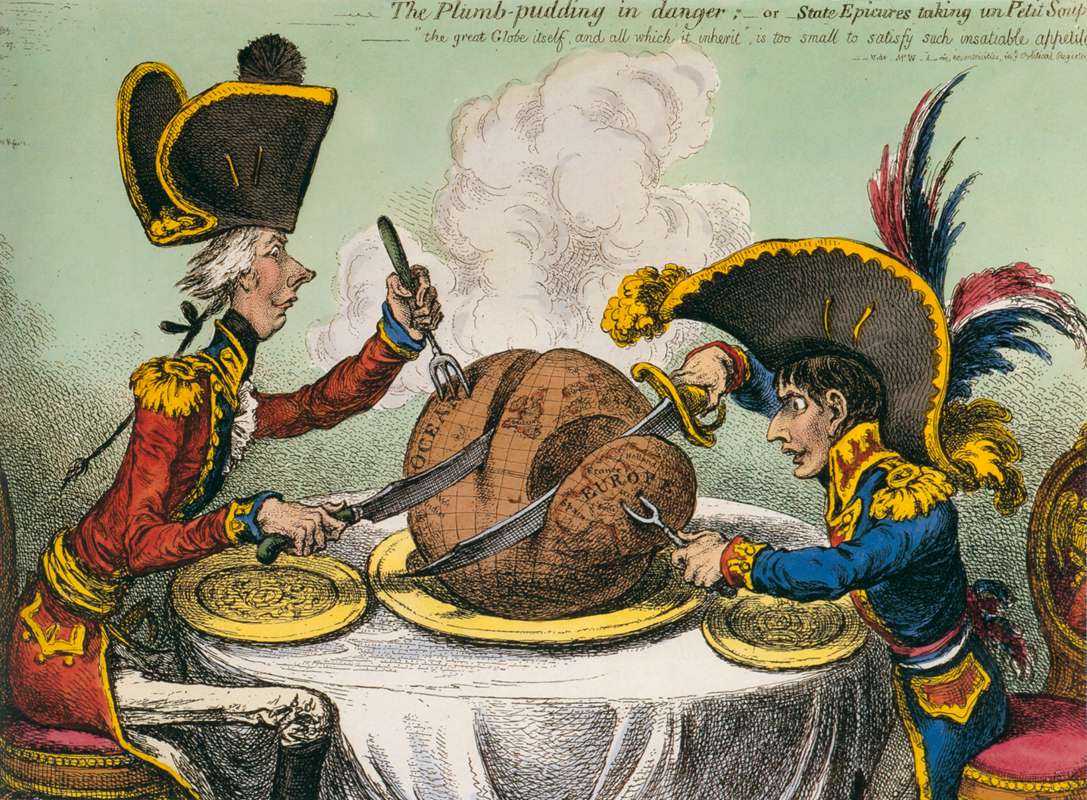
A few days ago, a bunch of journalists at the Economist got together and decided, like kindergarten teachers doling out their ‘best student’ award, which of the world’s countries has ‘most improved’ in the last calendar year. In an article brimming with cynicism, they selected Armenia.
It appears the rise of Trump and Brexit have left an indelible mark on journalists in the West. As what were once dominant colonial powers become increasingly irrelevant in the geopolitical sphere—their social fabrics deteriorating to reveal the insidious foundations upon which their modern-day nation states were built—it must be difficult to watch small, unimportant nations like Armenia (and Malaysia, also a ‘contender’) reveal themselves to be modern day beacons of progress.
Or perhaps writers at the Economist need a break from their daily coverage of lit’rally everything. This article is a great reminder as to the nonsensical role modern, globalized journalism has the potential to play in our daily lives. Lacking a unified community, writers for international publications write for seemingly everyone and yet, in an odd sort of way, for no one but themselves. Today, so much journalism is noncommittal, jaded, self-centered, and divorced from the collective and local human experience. Wasn’t this profession once born out of the need for communities to see themselves represented in pieces penned by those who understood them? Who or what community, one wonders, is the Economist representing?
The issue is not the idea of international coverage. It’s that the robust circuit of local news which once supplemented that coverage is disappearing. Today, one is more likely to find cities and towns teeming with folks more concerned with saving hungry children in countries they’ll never visit than with fixing their own disintegrating local food economies. (Rural communities, it’s worth mentioning, are not so transfixed on what is occurring on an international scale, and they are condemned for it by their urban counterparts.) Oxford, where I went to school, is home to some of the world’s brightest individuals, many of whom are in training to ‘solve’ the world’s problems on a global scale. Meanwhile, the city is racked with poverty. On my last visit, I saw four separate instances of unconscious homeless individuals on the street being carted off by ambulances. Local problems are invisible in and to a globalist agenda. We are losing our innate and historical ability to discern that which is and isn’t within our sphere of influence, and journalists at major publications are responding by fabricating arbitrary and cynical awards out of thin air (which Alexis Ohanian, at least, appears thrilled about).
In any case, read the article for yourselves, and determine what is a suitable reaction. But for the record, when it comes to nations with the ‘tastiest food’ (which it was decided Armenia is not)… perhaps, rather than ranking the world’s cuisines, the Brits should just stick to stealing them.



Fantastic. That’s all I have to say.
Fantastic!
Thank you to The Economist team for Rankanking Armenia ‘Country of the Year’
Thank you.
Hamov er! Nice!
This commentary reveals more about the writer’s hate for the British than anything else. If The Economist was being elitist, Ms. Vann, you are being childish.
Agreed, the author demonstrates her bias toward Great Britain. Why did she study at Oxford? If so did she matriculate?
Yes :)
I must admit that I could not understand Ms. Vann’s editorial’s *crux of the matter”. I was left with the impression that it was more about the sad state of journalism otherwise the Economist would not have picked Armenia as the as the ‘country of the year’ (quoting her). I am not a journalist, consequently I refrain from commenting on the state of ‘global’ journalism, after all, quoting her “Who or what community, one wonders, is the Economist representing?”. I guess the implication is that the “globalized” journalism surely does not represent the Armenian community. Did she mean to say Armenians in and outside Armenia or in the latter only? I am not sure.
The world is literally (sic) yearning for examples of successful, and peaceful, democratic transitions out of authoritarianism, and at last Armenia and Armenians are attracting global attention for their leadership. I’m curious about what The Armenian Weekly and the author are trying to achieve with this article?
ARMENIA HAS BEEN HOLY FOR CENTURIES
ARMENIANS WERE FORCED TO MIGRATE
BUT WHEREVER THEIR JOURNEY TOOK THEM;
THEY PERSEVERED and
CONTRIBUTED TO THE BETTERMENT OF THE WORLD.
That’s right!I have to add that in IRAN Armrnian have a very good reputation in what ever they do!if they are mechanic,they are among the best, their medical doctors,their architects,their bartenders and so on and on are among the Best!
Wishing them the best with a safe,bright,peaceful and prosperous features.
A little anybody knows that things in Armenia are now a lot worse than they were before the velvet revolution. Now we got bunch of square minded dogmatics that are absolutely incompetent and have no clue how to do their job. Not to mention that the previous administration had devostated the country to the point that it will take several generations to repair a third of the damage. I have given up on Armenia. There’s no hope for it.
This is absolutely baseless statement!
Totally agree with Ed. From the outside looking in, it seems wonderful. If you actually have skin in the game, it is a pretty horrid situation with extortion of property and announcements of wrongdoing without bothering to prove anything, sending KGB to threaten people, raiding the press, picking fights rather than governing, and seemingly a lack of understanding of economics. These aren’t foundations that I’d like to see things built on. I gave up too.
Apres Hayastan!
A den of professional thieves and criminals throws a bone to Armenians and everyone is excited? Typical self-destructive, politically illiterate Armenian behavior…
How come I am not surprised that the ECONOMIST, the prima Donna western elitist paper picked Armenia as a result of the possible western move by the velvet revolution. The Economist is now just like the BBC a mouthpiece for Western anti-russian constant propaganda.
Too many words and a little sense.
More and more people around the world are trying to regain authority and leadership from politicians who are unable to control even their attitude, who are heading countries right
into voids. France, Britain, USA, Russia… almost every country is in the list, everywhere people feel themselves betrayed and left by the government.
I hope Armenia will be the first but not last in the toughest way of founding real democracy. Freedom is the most expensive capital for Armenia, for the world, and we are ready to pay for it any price.
Other than being post-modernist nonsense teeming with soviet-style whataboutism, can this article be good for something? Oh yeah, Armenia is the deserving country of the year no matter how much the author hates it now(the country and the award). Do not wish ill for Armenia, please.
Yes we have come a long way & we do not need Economists or Columnists to remind us. People of Armenia, our brothers & sisters, need to understand & continue supporting our newly formed Government & respect it all. Good like Armenia.
Economist has huge readership among professionals (including many potential investors)…so getting recognized is an excellent news.
” Today, so much journalism is noncommittal, jaded, self-centered…”
Very true. And this article is a great example of just that – more about the author’s personal gripe about The Great Powers, The Economist, food networks etc than about the meaning of Armenia’s selection as the country of the year . :)
I have an impression that the writer of this silly article has been paid by the RPA who are losers, not to mention their other sins. I personally and more than 90% of Armenians living in Armenia and outside, are proud of our democratic achievements and our country. And lots of thanks to The Economist for recognizing the potential of Armenia and mentioning it. Let the losers cry secretly or outloud, but Armenia is on the right way! Vivat Armenia, vivat our velvet revolution. God bless our nation and country! Thank you, Economist!
Was there a point to this article, other than to lament the loss of journalistic integrity? Oh, the irony.
Let’s not be too critical of “The Economist”, Ms. Vann. They consider themselves the best and brightest of the UK. They study world affairs deeply, reading “Der Spiegel” carefully to learn about the US. They observe their neighbor France from up close, and show the lover Macron walking on water ! In Armenian, they would be described as “ciorvodaniner”.
I’m speechless at Ms. Vann’s article, ARF\ Tashnaktsoutune at its best, the cause of dismay, agony, pain and suffering of our honorable nation from as far back as we can remember, the editor of this paper should be fired for allowing Ms. Vanns nonsense be memorialized hence slapping our people in the face again and again……
Thanking The Economist’s editors and journalists for seeing the true worth of our country and our people and call it Country of the Year!
Shame on you Armenian Weekly!!!!!
This article is riddled with fallacies and goes off on a diatribe against “globalised journalism”. What is the point of such cynicism and bile against The Economist. It is after all a positive thing to be recognised as a country that has improved the most in the opinion of a respected and international publication. They provided analysis and reasons which were sound and logical, and it is “not brimming with cynicism” Ironic indeed! What is this “globalist agenda” that is so odious? What does it mean? What is the motivation for such flawed arguments?
The arguments are meaningless, petty and